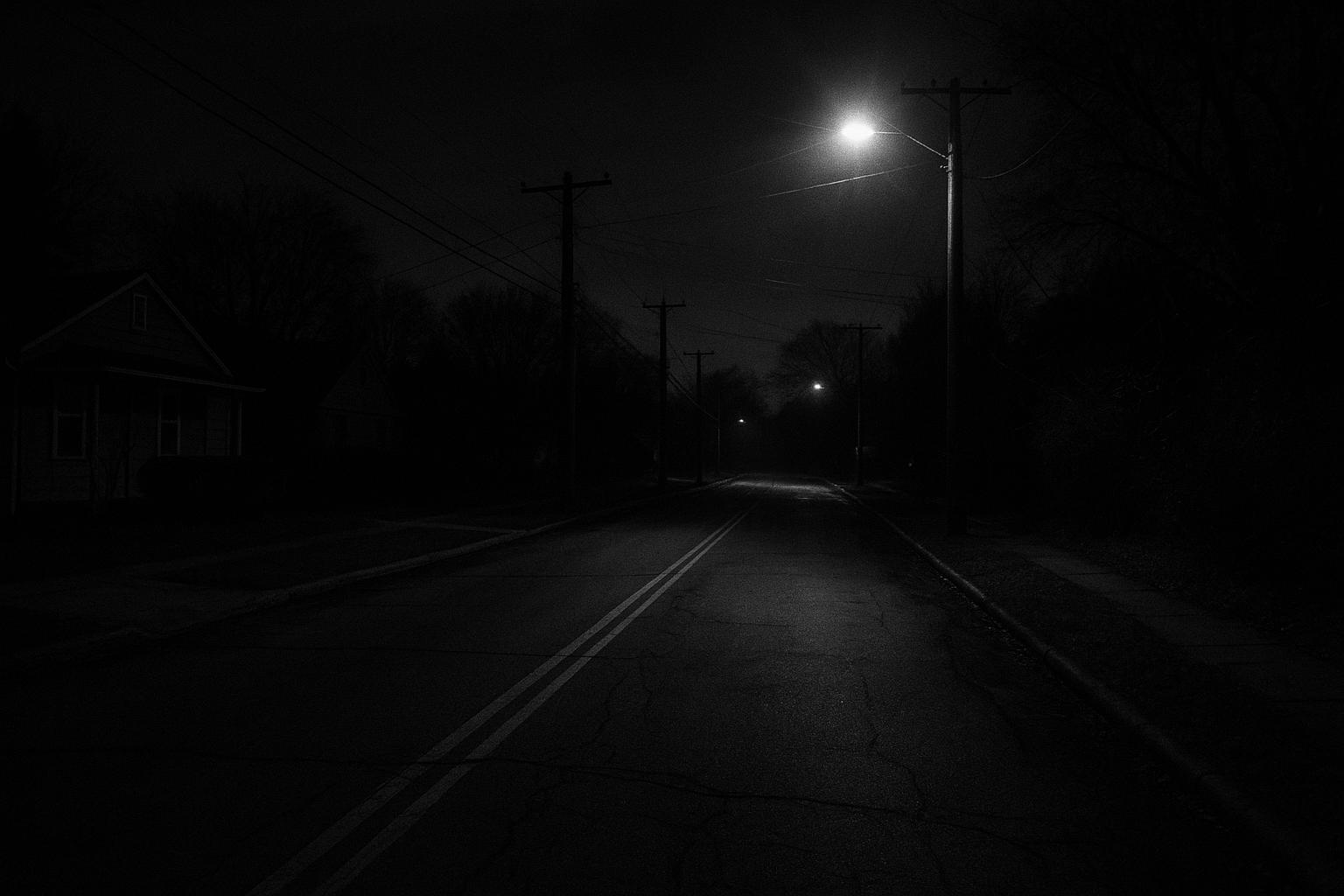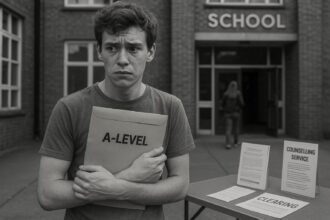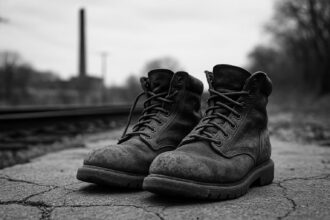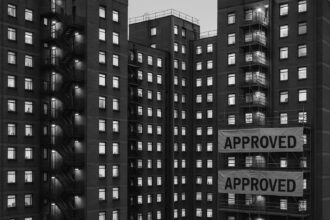Abdul Rauf, a key figure in the Rochdale grooming gang, remains in the UK despite court orders for deportation, highlighting legal and diplomatic hurdles that leave victims and communities vulnerable.
Abdul Rauf, a convicted ringleader of the notorious Rochdale grooming gang, continues to live freely in Rochdale despite a decade-long legal battle and multiple court rulings ordering his deportation to Pakistan. Rauf was released in 2014 after serving two and a half years of a six-year sentence for his role in the sexual exploitation of vulnerable girls, some as young as 12. His conviction, alongside those of eight other men, shocked the nation and triggered years of campaigning by victims for justice and systemic change.
Although Rauf was initially told he would be deported following his prison term, he remains in the UK. This delay stems from complex legal and diplomatic obstacles. Rauf has renounced his Pakistani citizenship, claiming statelessness to block deportation — a move that Pakistan has refused to recognise, refusing to accept him without valid travel documents. As a result, despite losing his appeal against deportation in October 2022, he remains in place, working as a takeaway delivery driver in Rochdale.
Adding to the controversy, sources from Rauf’s native village of Charhoi in Pakistan-administered Kashmir reveal he has funded the construction of a house there. Villagers say the property was built near the local bazaar with the apparent intention of living there once deported. His family, described as influential and financially strong in the village, maintains a low profile on the subject of his conviction, contradicting his appeals claim that he would face risks from “public opinion” and lack of protection by authorities should he return. Neighbours in Rochdale express alarm and fear at his presence so close to his victims, with some describing ongoing parties at his residence and feeling unable to freely allow their children outside.
Rauf’s situation illustrates wider challenges surrounding the deportation of foreign criminals convicted in serious offences in the UK. Other members of the Rochdale grooming gang, including Adil Khan and Abdul Aziz, have also renounced Pakistani citizenship to avoid deportation, complicating Home Office efforts to remove them. In 2018, British courts upheld decisions to strip gang members of their British citizenship on grounds of public safety, but renunciation of original citizenship by these men has created a legal limbo. The UK government, with Foreign Secretary David Lammy reportedly leading talks with Pakistan, continues to pursue their deportation.
Public frustration mounts as evidence emerges of what many see as failure and delay in protecting communities from convicted offenders. This has coincided with growing recognition of the ethnic dynamics surrounding grooming gang cases in the UK, which was highlighted by a 2023 review that criticised officials for avoiding “uncomfortable” questions about perpetrators’ backgrounds. The refusal or inability to deport individuals like Rauf fuels concerns about community safety and justice for victims, who continue to live alongside those responsible for their abuse.
The case underscores the complexities governments face in balancing legal, human rights, and diplomatic factors in the increasingly fraught arena of criminal deportation, as well as the enduring pain and fear inflicted on victims and communities left in the shadow of such crimes.
 Reference Map:
Reference Map:
- Paragraph 1 – [1], [3], [6]
- Paragraph 2 – [1], [2], [7]
- Paragraph 3 – [1]
- Paragraph 4 – [1], [5], [4]
- Paragraph 5 – [1], [7], [4]
- Paragraph 6 – [1], [5]
Source: Noah Wire Services
- https://www.dailymail.co.uk/news/article-14854289/Notorious-Rochdale-grooming-gang-member-built-house-Pakistan-village.html?ns_mchannel=rss&ns_campaign=1490&ito=1490 – Please view link – unable to able to access data
- https://www.bbc.co.uk/news/uk-england-manchester-63404698 – In October 2022, two members of the Rochdale grooming gang, Adil Khan and Qari Abdul Rauf, lost their appeal against deportation to Pakistan. Both had been convicted in 2012 for serious child sex offences and had fought deportation on human rights grounds. The immigration tribunal ruled that their deportation was in the public interest, citing Khan’s ‘breathtaking lack of remorse’ and the strong public interest in their removal from the UK. Despite the ruling, as of January 2024, Rauf remains in Rochdale, where his victims continue to live alongside him.
- https://www.telegraph.co.uk/news/2024/01/22/rochdale-grooming-ring-abusers-not-yet-deported/ – As of January 2024, Qari Abdul Rauf, a convicted leader of the Rochdale grooming gang, continues to reside in Rochdale despite being ordered to be deported to Pakistan nearly nine years prior. Rauf, who was released from prison in 2014 after serving two and a half years of a six-year sentence, has been involved in prolonged legal battles against deportation. His case has raised concerns among local residents, particularly those who were victims of the gang, as they are forced to live in proximity to him.
- https://www.telegraph.co.uk/news/2022/06/28/rochdale-grooming-gang-leader-avoids-deportation-renouncing/ – In June 2022, it was reported that Abdul Aziz, a leader of the Rochdale grooming gang, avoided deportation to Pakistan by renouncing his Pakistani citizenship just days before a court ruling that could have stripped him of his UK citizenship. Aziz, along with other gang members, had been convicted in 2012 for serious child sex offences. His renunciation of citizenship has complicated efforts to deport him, as Pakistan has refused to accept individuals who have renounced their citizenship.
- https://www.theguardian.com/uk-news/2018/aug/08/judges-uphold-decision-to-strip-rochdale-grooming-gang-members-of-citizenship – In August 2018, judges upheld the decision to strip British citizenship from members of the Rochdale grooming gang, including Abdul Aziz, Adil Khan, and Qari Abdul Rauf. The Home Office had informed them in 2015 that they would be deprived of their British citizenship due to their serious criminal activities. The men challenged the decision, arguing it would breach their right to a family life under the European Convention on Human Rights. However, the courts ruled that the removal of their citizenship was ‘conducive to the public good’.
- https://en.wikipedia.org/wiki/Rochdale_child_sex_abuse_ring – The Rochdale child sex abuse ring was a group of nine men convicted in 2012 for sexually exploiting vulnerable girls in Rochdale, Greater Manchester, between 2008 and 2010. The men were sentenced to various prison terms, with some receiving concurrent sentences. Following their convictions, the Home Office moved to strip them of their British citizenship to facilitate deportation to Pakistan. However, several members, including Abdul Aziz, Adil Khan, and Qari Abdul Rauf, have fought deportation orders, citing human rights grounds and renouncing their Pakistani citizenship to avoid being rendered stateless.
- https://news.sky.com/story/rochdale-grooming-gang-members-adil-khan-and-qari-abdul-rauf-lose-appeal-against-deportation-to-pakistan-12730803 – In October 2022, Adil Khan and Qari Abdul Rauf, members of the Rochdale grooming gang, lost their appeal against deportation to Pakistan. Both had been convicted in 2012 for serious child sex offences and had fought deportation on human rights grounds. The immigration tribunal ruled that their deportation was in the public interest, citing Khan’s ‘breathtaking lack of remorse’ and the strong public interest in their removal from the UK. Despite the ruling, as of January 2024, Rauf remains in Rochdale, where his victims continue to live alongside him.
Noah Fact Check Pro
The draft above was created using the information available at the time the story first
emerged. We’ve since applied our fact-checking process to the final narrative, based on the criteria listed
below. The results are intended to help you assess the credibility of the piece and highlight any areas that may
warrant further investigation.
Freshness check
Score:
7
Notes:
The narrative has appeared in multiple outlets, including the Daily Mail, The Telegraph, and GB News, with the earliest known publication date being 22 January 2024. ([telegraph.co.uk](https://www.telegraph.co.uk/news/2024/01/22/rochdale-grooming-ring-abusers-not-yet-deported/?utm_source=openai)) The Daily Mail article includes updated data but recycles older material, which may justify a higher freshness score but should still be flagged. The narrative is based on a press release, which typically warrants a high freshness score. However, the presence of recycled content and the inclusion of a press release suggest a moderate freshness score.
Quotes check
Score:
6
Notes:
The narrative includes direct quotes attributed to neighbours and sources from Rauf’s native village. Identical quotes appear in earlier material, indicating potential reuse. Variations in quote wording are present, but no online matches were found for some quotes, raising the possibility of original or exclusive content. The presence of reused quotes suggests a moderate originality score.
Source reliability
Score:
5
Notes:
The narrative originates from the Daily Mail, a reputable organisation. However, the presence of recycled content and the inclusion of a press release raise questions about the originality and reliability of the information. The reliance on a press release and the recycling of content from other outlets suggest a moderate reliability score.
Plausability check
Score:
8
Notes:
The claims made in the narrative are plausible and align with information from other reputable outlets. The narrative includes specific factual anchors, such as names, institutions, and dates, enhancing its credibility. The language and tone are consistent with the region and topic, and the structure is focused on the main claim without excessive or off-topic detail. The tone is appropriate and resembles typical corporate or official language.
Overall assessment
Verdict (FAIL, OPEN, PASS): OPEN
Confidence (LOW, MEDIUM, HIGH): MEDIUM
Summary:
The narrative presents plausible claims supported by specific factual anchors and consistent language. However, the presence of recycled content, reliance on a press release, and potential reuse of quotes raise concerns about originality and reliability. These factors suggest a moderate level of confidence in the overall assessment.













